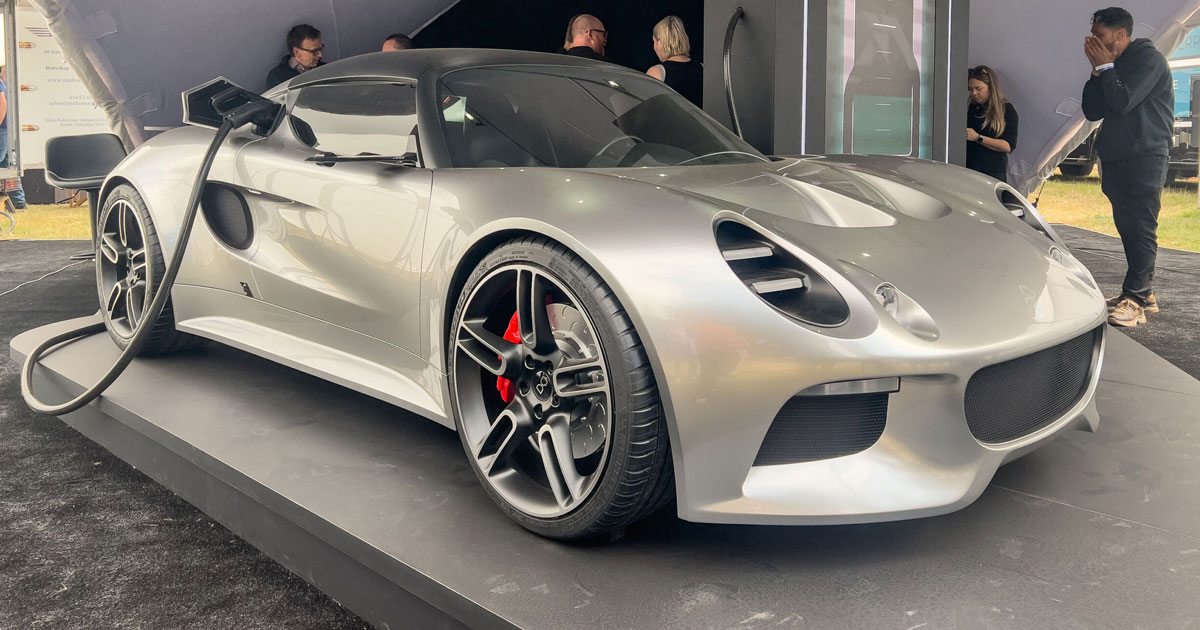New EV Car Battery Charges in Under 5 Minutes!

Introduction
Electric vehicles (EVs) have revolutionized the automotive industry, offering a sustainable alternative to traditional gasoline-powered cars. However, one of the significant challenges that still plague the EV market is the lengthy battery charging time. This issue not only hinders long road trips but also inconveniences daily users who lack access to home charging. A British startup, Nyobolt, has taken a significant step towards solving this problem with a new battery that charges in less than five minutes.
Nyobolt’s Revolutionary Battery
Nyobolt, based in Cambridge, recently unveiled a groundbreaking 35 kWh lithium-ion battery that charges from 10% to 80% in just over four and a half minutes. This is a remarkable improvement over the 20 minutes or so required by some of the fastest chargers currently available, such as the Tesla Supercharger. This development brings charging times much closer to the two minutes it takes to fill up a gasoline-powered car, a critical factor in encouraging wider adoption of EVs.

The Technology Behind the Innovation
Nyobolt’s battery technology is the result of extensive research led by Clare Grey, a renowned battery scientist at the University of Cambridge, and Nyobolt’s co-founder and CEO, Sai Shivareddy. Their innovative design focuses on reducing heat generation during charging, which not only allows for faster charging times but also enhances the battery’s safety by mitigating the risk of overheating, which can lead to fires and explosions.
The key to this rapid charging capability lies in the materials used for the battery’s anodes. These materials facilitate a quicker transfer of electrons, enabling the battery to charge much faster than conventional lithium-ion batteries. Nyobolt’s technology promises to make electric transportation more practical and appealing, particularly for commercial EV fleets and drivers who rely heavily on their vehicles for work.
Market Potential and Future Plans
Nyobolt is in discussions with eight major electric car manufacturers to integrate its batteries into their vehicles. While the current 35 kWh battery is smaller than the typical 85 kWh batteries found in many American EVs, the technology can be scaled up for larger battery packs in the future. This scalability could revolutionize the EV market, making fast-charging batteries a standard feature in electric cars.
Addressing Infrastructure Challenges
Despite the promising technology, widespread adoption of Nyobolt’s battery faces significant hurdles, particularly the lack of public charging infrastructure. In the UK, for example, ultra-rapid chargers capable of delivering the necessary power to charge Nyobolt’s batteries are scarce. Jack Evans, a motoring specialist at Blackball Media, emphasizes the need for an increase in the provision of these chargers to realize the full potential of Nyobolt’s innovation.
Shivareddy acknowledges this challenge but remains optimistic, noting that the number of fast chargers is increasing in both the US and the European Union. He envisions a future where ultra-rapid chargers are commonplace, significantly reducing charging times and enhancing the convenience of EV ownership.
Compatibility and Industry Collaboration
Nyobolt’s batteries are compatible with Tesla’s Supercharger network, which accounts for three-quarters of the fast chargers in North America. This compatibility is crucial as virtually every major automaker in the US has committed to making their EVs compatible with Tesla’s North American Charging Standard. Shivareddy expresses a desire to collaborate with Tesla and other leading manufacturers to bring their vision of ultra-fast recharging times to life. This would necessitate a coordinated effort to roll out a large number of high-power chargers, along with the necessary power supply infrastructure.
Durability and Scalability
Independent testing by a leading global manufacturer has confirmed that Nyobolt’s batteries can endure over 4,000 fast-charge cycles, equivalent to 600,000 miles, while retaining more than 80% of their capacity. This durability is significantly higher than the warranties of many larger EV batteries currently on the market, making Nyobolt’s technology not only faster but also more reliable.
However, scaling this technology to an industrial level presents its own set of challenges. Nyobolt’s batteries utilize niobium, a chemical element that was mined in relatively small quantities worldwide last year compared to materials like graphite. William Kephart, an e-mobility specialist, points out that the industry will need to work out these supply issues to make niobium-based batteries a scalable solution.
Overcoming Barriers to EV Adoption
In addition to slow charging times, EV adoption in the US and Europe faces other obstacles such as range anxiety and the higher average cost of EVs compared to conventional cars. Nyobolt’s technology addresses the charging time issue, making EVs more convenient for long-distance travel and daily use. However, solving range anxiety and cost issues will require continued innovation and investment in battery technology and infrastructure.
Conclusion
Nyobolt’s breakthrough in battery technology represents a significant advancement in the quest to make electric vehicles more practical and appealing to a broader audience. By reducing charging times to less than five minutes, Nyobolt addresses one of the biggest drawbacks of current EVs. However, the widespread adoption of this technology will require substantial improvements in charging infrastructure and industry collaboration. As the EV market continues to evolve, innovations like Nyobolt’s battery will play a crucial role in shaping the future of transportation. Photo Credit Via Arstechnica

